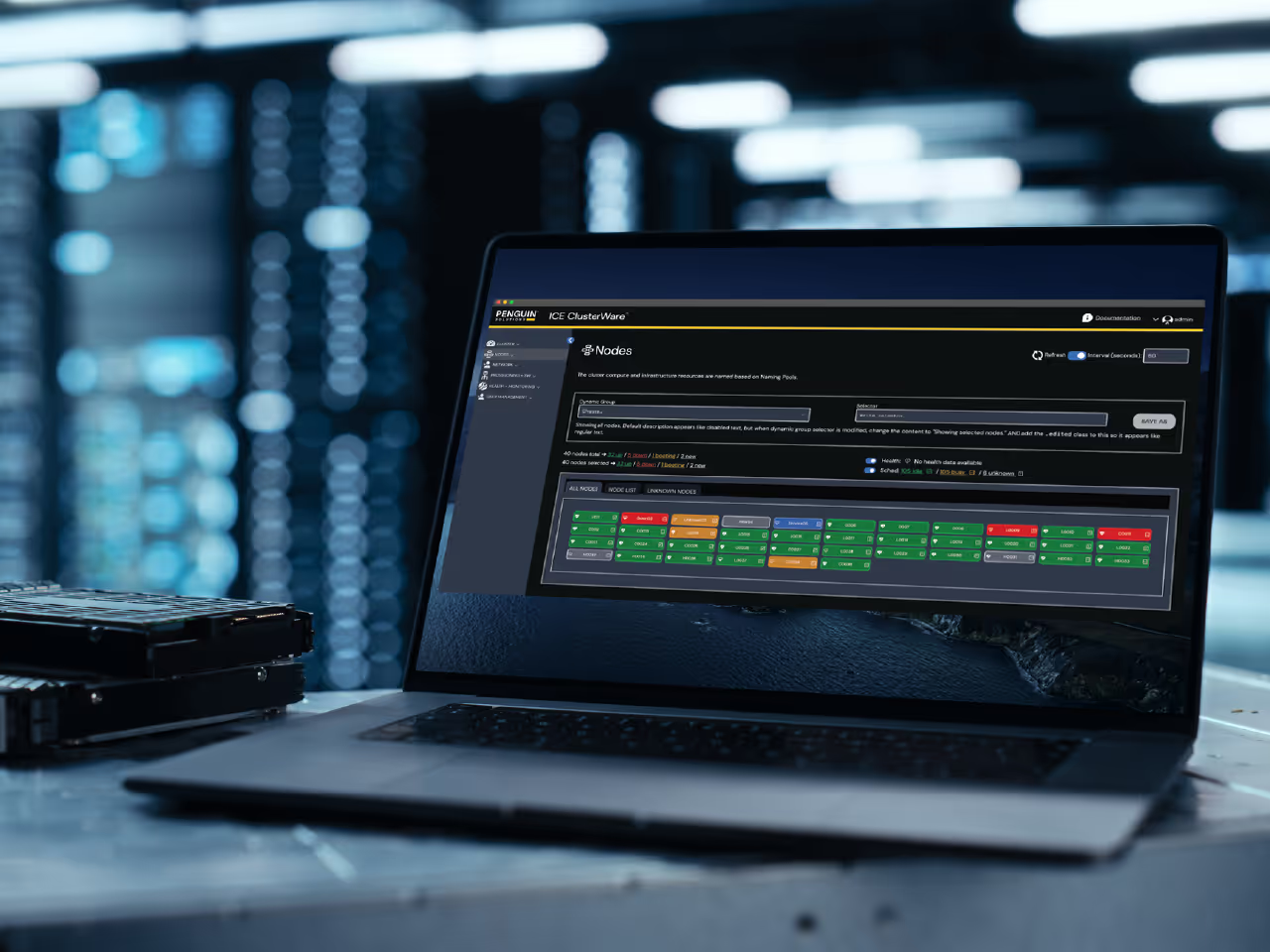AI & HPC Data Centers
Fault Tolerant Solutions
Integrated Memory

Analyze large volumes of data for rapid insights when simulation alone cannot fully predict the real world, in areas like medical imaging, bioinformatics, drug discovery, and high-energy physics.
With gene therapy advances on one side and expiring patents on the other, the health, biopharmaceutical, and bioinformatics industry is experiencing increasing pressure to convert research into breakthrough discovery more quickly than ever.
Researchers must address not only biology and chemistry but also bioinformatics, genomics, big data analytics, quantitative mathematical modeling, computational bio-imaging—requiring accelerated computing for faster time-to-results.
Accelerate your drug discovery and development process with advanced computing—leading to unprecedented revenue opportunities and optimal ROI while advancing scientific research with an unwavering patient healthcare commitment.
In this new era of AI supercomputing, life sciences and healthcare companies can now conduct more intensive investigations of biological systems, gain greater insights, and generate actionable data more quickly and more cost-effectively than ever before.
Massive amounts of patient, device, research, and other data available in recent years have dramatically expanded the type of organizations who want to use advanced computing to glean additional knowledge and take action.
Patient diagnosis and treatment, addressing rising costs, and delivering better clinical outcomes balance traditional use cases of drug development, genetic testing, and contagion analysis.
More and more organizations are accelerating discoveries, increasing competitiveness, and improving the effectiveness of clinical treatments.
Shifting to AI supercomputing systems will enable drug discovery teams to create safer, more effective potential pharmaceuticals in less time. Scientists can use cryogenic electron microscopy (cryo EM) to create high-resolution molecular structures and discover new disease targets—and the implications go on and on.


Pharmaceuticals, medical technology, and biotechnology manufacturing companies rely on consistent operations running smoothly and always-on automation to meet strict regulations and rigid operational standards. Any small amount of unplanned system downtime can result in a decline in product quality and brand reliability.
Furthermore, healthcare providers depend on digital technologies to ensure accountability of care and efficient management of patient records. Availability of critical systems such as electronic health records (EHR), hospital information systems (HIS), picture archiving and communications systems (PACS), and other clinical and administrative applications is paramount. No organization can afford anything less than always on when lives are at stake.
Our zero-touch computing platforms run critical applications with built-in fault tolerance, ensuring up to 99.99999% platform uptime. Featuring application virtualization, they consolidate key workloads onto a single compute platform, reducing the need for multiple servers and simplifying operations without adding risk.


Radiologists can process large 3D medical datasets and generate medical imaging faster while improving quality and reducing patient radiation exposure.

Epidemiologists can identify disease patterns and generate complex predictive outbreak models that identify high-risk populations and hotspots.

Molecular biologists can analyze large genomic datasets to discover new genes and identify genetic variations and patterns associated with diseases.
The Jackson Laboratory has chosen Penguin's ClusterWare node cluster management software for the management of their HPC solution suite.
Two key areas of research at The Jackson Laboratory include: to understand how genome organization and variation determine individual susceptibility to diseases such as cancer, diabetes, heart disease and neurological diseases; and, to identify molecular and cellular mechanisms that drive initiation and progression of these diseases.
Research on these interconnected themes is based on genetic mouse models. It increasingly involves comparative, ‘in silico’ approaches that compare sequences obtained from a next generation genome sequencer with reference genomes. Through these comparative analyses genetic variations such as polymorphisms or copy number variations are determined.


OriginAI® is an AI factory infrastructure solution built upon proven, pre-defined AI architectures that scale from hundreds to more than 16,000 GPU clusters. OriginAI integrates these validated technologies with Penguin’s intelligent, intuitive cluster management software and expert services.

Simplify the deployment and management of AI clusters to quickly realize high productivity. Bare-metal hardware, network, and software resources are transformed into high-performance cluster environments, streamlining administration complexity, and optimizing resource availability.

Penguin Solutions has designed and deployed large NVIDIA DGX clusters, with high-speed NVIDIA InfiniBand networking and optimized storage. We have relationships and expertise with most storage vendors, allowing us to provide bespoke solutions for every customer.

Reach out today and learn more how we can provide the AI infrastructure to help advance science and convert workloads of massive data sets into scientific breakthroughs.